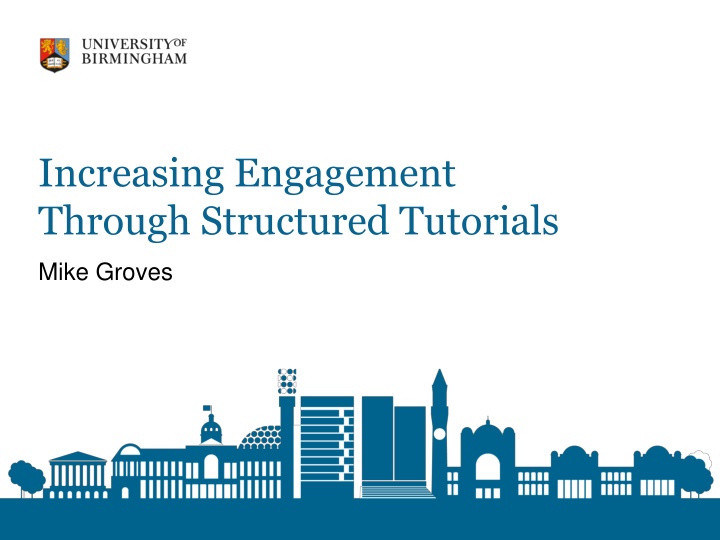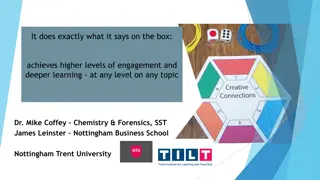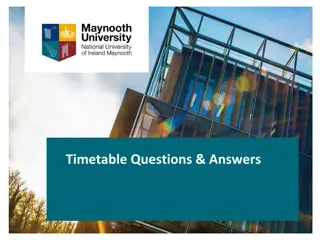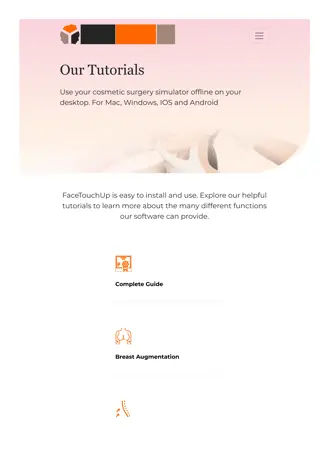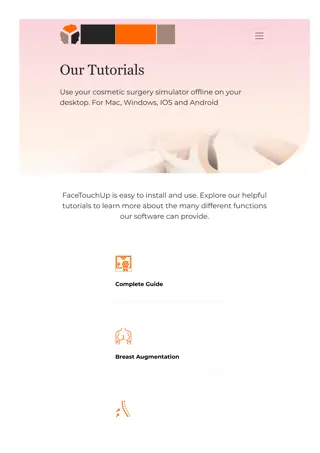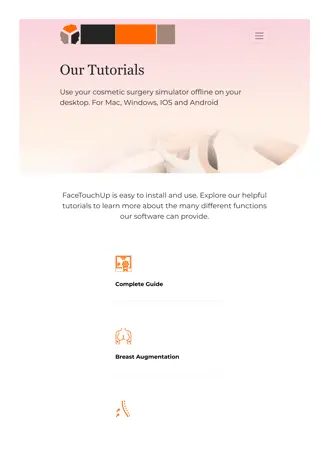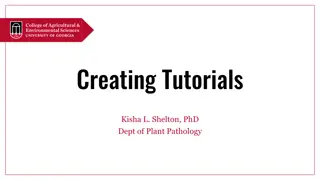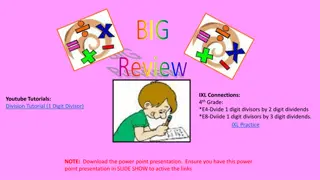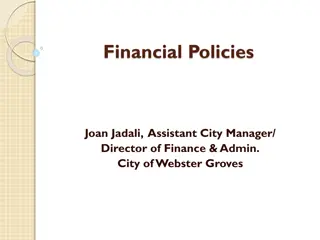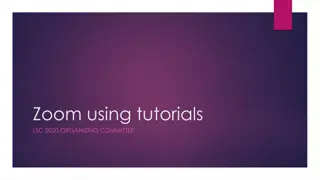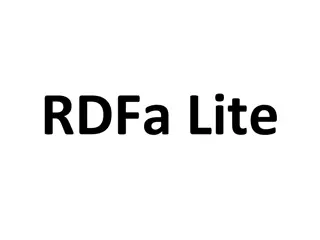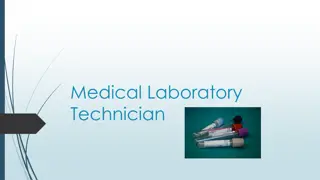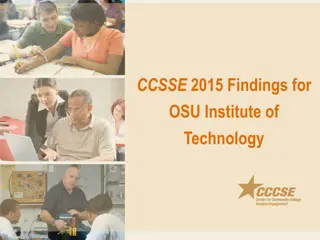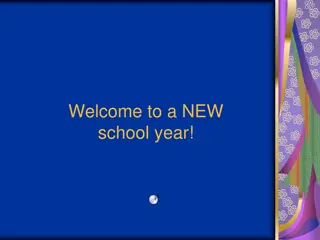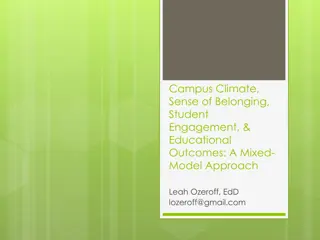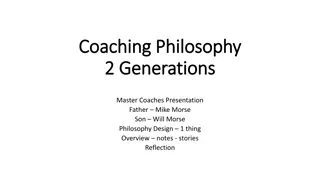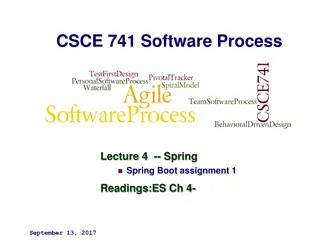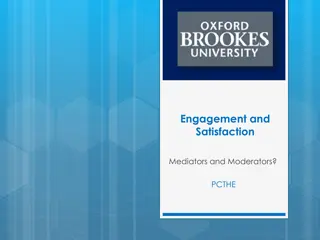Enhancing Student Engagement with Structured Tutorials by Mike Groves
Explore how to address challenges impacting student motivation and achievement in academic environments through a structured tutorial approach. Delve into theoretical backgrounds and practical solutions to foster a positive learning experience and increase student engagement levels.
Download Presentation

Please find below an Image/Link to download the presentation.
The content on the website is provided AS IS for your information and personal use only. It may not be sold, licensed, or shared on other websites without obtaining consent from the author.If you encounter any issues during the download, it is possible that the publisher has removed the file from their server.
You are allowed to download the files provided on this website for personal or commercial use, subject to the condition that they are used lawfully. All files are the property of their respective owners.
The content on the website is provided AS IS for your information and personal use only. It may not be sold, licensed, or shared on other websites without obtaining consent from the author.
E N D
Presentation Transcript
Increasing Engagement Through Structured Tutorials Mike Groves
Outline The problem The theory The solution The data The next steps
Background- BIA Pathways Over 200 students IELTS scores from 5.5 to 9 Target degrees Engineering, Business, Medicine, Law inter alia Crowded curriculum Slight marginalisation 4,6 and 10 hours per week. Tutorial every second week.
The Problem Some students lacking motivation and achievement Language Other skills Lack of development in terms ability to function effectively in a new academic environment
What causes this? Culture shock Teenageriness Lack of confidence Over confidence Peer pressure Exhaustion Too much English? (Speculation & Experience, 2017)
Experience tells me The problem with engagement activities
Theoretical Background Dornyei Dweck Fanghanel Holliday
Dornyei and Ideal L2 self motivation system Ideal L2 Self If the learner has a desired future image Which is elaborate and vivid Which is perceived as plausible and harmony with the expectations of the learners family Which is accompanied by relevant and effective procedural strategies Which also contains elaborate information about the negative consequences (Dornyei,2009, p.27 My Bullets)
Dweck and The Mindset Fixed vs growth mindsets Entity vs incremental That intellectual ability is a skill that needs to be nurtured. The motivational difference between telling a student they are smart, and they worked hard. (Dweck and Master, 2009)
Different perspectives on teaching in HE Educational ideology in relation to teaching Ideological perspective Traditionalist/Liberal Learning for its own sake. Advancing knowledge through intellectual enquiry Vocationalist Human capital. Establishing link between education and the needs of the economy Progressive/ Emancipatory Personal choice and growth Social Constructionist/Critical HE is a vehicle to transform society. . (Fanghanel, 2009)
The nature of the space, Culture of dealing Multiple related background influences Multiple related background influences Tourist trading culture Tourist Culture Interaction Interculture - (Holliday, Hyde and Kulman, 2010) Holliday, Hyde and Kullman, 2010
The nature of the space Educational Culture Discipline Criticality Approach Educational Culture Discipline Criticality Approach Home Culture Freedom Responsibility Norms Expectations Anglo culture Freedom Responsibility Norms Expectations Foundation
In summary The need for a vision of self The need to encourage growth The need for personal choice The need to define the space from all sides So, how?
Aims of the Guided Tutorials To encourage students to develop an understanding of themselves as learners To help students transition into independent and effective learners To encourage students to reflect on areas where they need to develop To encourage students to gain an insight into what is expected of them.
Format Each week, a reading text (around 1000 words) Reflective task Discussion
Plan TERM ONE TERM TWO 1 First Tutorial- Skills Audit Goal Setting 2 Term 1 Assessment feedback 3 Time Management Time Management 4 Vocabulary building Vocabulary building 5 Reading and researching Reading and researching 6 Dealing with difference/Culture Shock Dealing with difference/Culture Shock 7 Mid Term Feedback Mid Term Feedback 8 Essay Planning Final Tutorial 9 Critical Thinking Final Tutorial 10 Essay drafts Essay drafts 11 Assessment Assessment
Sample text (Vocabulary) Being strategic It is important to have a strategy for improving your vocabulary. This will generally have three strands. Firstly, you need to identify the language that you know, or only partially know. Then you have to work out a way of recording it. Finally, you need to recycle it. This means using the new words so that they become part of your active vocabulary. Below are two students and the strategies that they use. Student A is a fairly competent user of English. She has a large vocabulary, but some of the more formal words are less familiar to her. She uses the following strategy to improve her vocabulary. She takes an article or a web page form her subject and runs it through lextutor (http://www.lextutor.ca/vp/). She checks the words that are more academic (from the Academic Word List or AWL) and records any she doesn't feel 100% familiar with. Then she uses a word cloud (http://www.wordclouds.com/) to see the most common words. She also records any she is unfamiliar with in a notebook. Whenever she writes something, she tries to use the words in the notebook, ticking them when she does so. Student B is less confident with English. He knows that there is a large number of words that he needs to become more familiar with. Therefore, he carries a notebook with him, and every time he sees a word he is not sure of, he writes it down. Then, once a day, he transfers these words onto small index cards with their meanings and other information from the Oxford learners Dictionary: http://www.oxfordlearnersdictionaries.com/. He then carries these cards around with him, and tests himself regularly. When he is sure he is familiar with a word, he puts it in a box. Once a week, he also goes through this box to make sure he remembers.
Sample Task Reflection How would you describe your vocabulary? How often do you see words you don t know? Do you know all the parts of speech of words? Do you know a lot of high level, sophisticated words? How deep is your knowledge of subject specific vocabulary? What have you done in the past to improve your vocabulary? Read the section in the student guide about improving your vocabulary. Strategies Here are a number of strategies Have two notebooks. Carry one around with you. When you see an important new word, record it. Then, every evening, transfer this into the other book you keep at home. Look up the word, and record lots of information about it. Write the new words on index cards, which you carry round with you. Test yourself regularly. Set up a personal section on Memorise or Quizlet. Invite a friend to join. Turn it into a game. Create word clouds from electronic articles to see the commonly used vocabulary in your area. Use your recorded vocabulary when you are writing.
Questionnaire 7 multi item Likert scales I found the tutorials useful I took part in the tutorial tasks The tutorial tasks helped me develop The tasks helped me become a more reflective learner I am intrinsically motivated I have a strong future self idea I enjoyed the foundation course overall Plus demographic information (age, gender, nationality, pathway) Designed according to Dorneyi (2007)
Results (n=29) Eliminated Scale title Mean (1-5) Cronbach s alpha 1e .717 I found the tutorials useful I took part in the tutorial tasks The tutorial tasks helped me develop The tasks helped me become a more reflective learner I am intrinsically motivated I have a strong future self idea I enjoyed the foundation course overall 3.01 1 2a .735 3.39 2 3e .855 3.46 3 n/a .858 3.43 4 n/a .739 3.74 5 n/a .727 3.74 6 n/a 8.14 3.99 7
Gender/Age/Nationality/Pathway No statistically significant relationships found
Correlations between scales (n=29) Scales r Sig Develop Reflective .601 .000 Useful Develop .547 .000 Intrinsic Future self .496 .000 Intrinsic Positive .457 .010 Useful Reflective .420 .000 Develop Positive .376 .007 Reflective Positive .361 .002 Reflective Future self .311 .007
Discussion These are reasonably popular, but not to a great extent Lack of evidence that these tasks help the most vulnerable students
Future directions The need for tutor and student buy in Moving from tutorials to online and class discussions Longitudinal study
References Dornyei, Z. (2009) The L2 motivational self system in E. Ushioda and Z Dornyei (eds) Motivation,, Language Identities and the L2 Self. Pp 9- 42 Bristol. Multimedia matters Dweck, C and Master, A (2009) Self Concept in W. Carey et al (eds) Developmental-Behavioral Paediatrics (Fourth Edition) pp427-435 Philadelphia, PA: Elsevier Fanghanel, J. (2009) The role of ideology in shaping academics conceptions of their discipline , Teaching in Higher Education, 14(5) , pp 565-577, DOI: 10.1080/13562510903186790 Dornyei, Z. (2007) Research Methods in Applied Linguistics: Quantitative, Qualitative, and Mixed Methodologies. Oxford: Oxford University Press Holliday, A, Hyde, M and Kullman, J (2010) Intercultural Communication: An advanced resource book for students. Abingdon, Routledge
